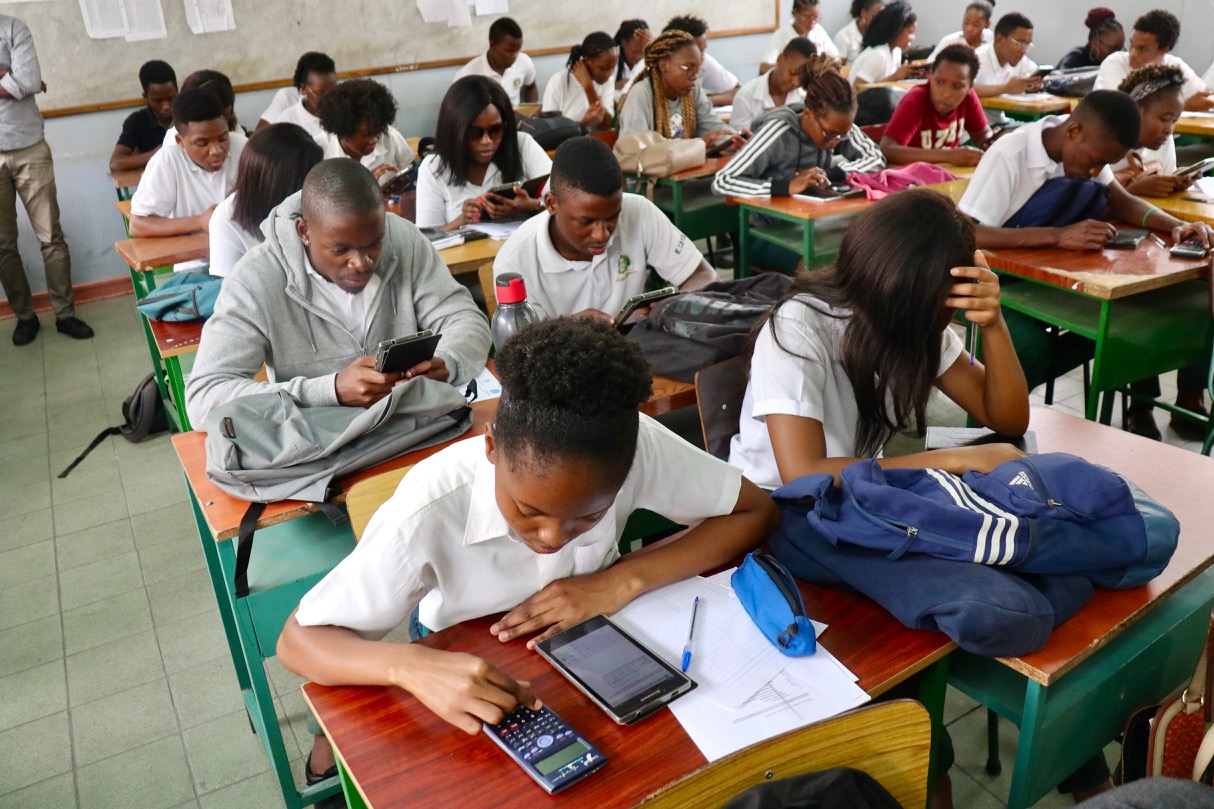Blog
Is vocational education the fast track to employment in Mozambique?
Technical and vocational education and training (TVET) is often put forward as the solution to youth unemployment — but to prove its worth, better evidence is needed. A new survey tracking over 1,600 TVET graduates as they enter the world of work, the first of its kind in Mozambique, sets out to improve the evidence base for TVET policy and practice, where training quality, work and skills mismatches remain a major challenge. In this blog, Anna Schnupp looks at the findings from the baseline survey implemented in 2019 and what policy insights may be gained from the follow-up survey being carried out between March and December 2020.
Technical and vocational education and training (TVET) is currently a hot topic in development and education policy in East and sub-Saharan Africa. Global and regional actors, including the World Bank through initiatives such as EASTRIP and PASET, are widely increasing their support to countries’ efforts to revamp their TVET institutions and combat youth unemployment and meet the needs of the structural change in their labour markets.
At its best, TVET strategically trains young people to fill skills gaps, prepares students for a smooth transition from school to work, and boosts the economy through entrepreneurship. But there is often a gap between potential and performance: out-of-touch institutions with limited budgets struggle to keep up with rapidly evolving labour markets, and risk trapping graduates with limited skill sets that are not in demand.
As a result, TVET has long yo-yoed in and out of fashion in global education policy — and it will continue to do so without an evidence base to assess its effectiveness and learn what works.
 The Southern African Development Community (SADC) and UNESCO recognize the lack of knowledge and information on regional TVET initiatives as a major obstacle to successful reform. Research, such as the new survey study launched by the Inclusive growth in Mozambique programme, in collaboration with the Ministry of Labour, Employment and Social Security of Mozambique, addresses this knowledge gap and seeks to support a culture of learning at the core of TVET policy that allows all actors to engage and reflect on the information, knowledge and experiences. The survey will track 1,639 TVET graduates from across Mozambique as they enter the labour market, and will provide us with insights on employment after TVET in the country, unlike any we have seen before.
The Southern African Development Community (SADC) and UNESCO recognize the lack of knowledge and information on regional TVET initiatives as a major obstacle to successful reform. Research, such as the new survey study launched by the Inclusive growth in Mozambique programme, in collaboration with the Ministry of Labour, Employment and Social Security of Mozambique, addresses this knowledge gap and seeks to support a culture of learning at the core of TVET policy that allows all actors to engage and reflect on the information, knowledge and experiences. The survey will track 1,639 TVET graduates from across Mozambique as they enter the labour market, and will provide us with insights on employment after TVET in the country, unlike any we have seen before.
Getting evidence into education policy reform is more important than ever
TVET in Mozambique has undergone significant changes since the 2000s, including a new competency-based curriculum endorsed by the World Bank, new regulatory bodies in the landscape of TVET providers, and schools across the country have been revamped into reference institutes. After nearly two decades of reforms, our study comes at an opportune time to evaluate the school-to-work transitions within the Mozambican TVET system.
As part of a team of four researchers, I travelled to the provinces of Tete, Nampula, Maputo City, Cabo Delgado and Maputo Province in October and November 2019 to collect baseline data from students in their final year of technical education. I was struck by the huge range in the quality of the institutes I visited. Some schools appeared to be on the cutting edge, with newly refurbished and well-stocked workshops, often supported by external foreign funding, while others were clearly struggling, their libraries full of outdated books, workshops closed due to broken equipment, and with not enough livestock for the agriculture students to take practical classes. The results of the baseline survey reflect the difficulties faced — 76% of students said their schools needed priority investments in equipment, and more than one in three said a lack of quality equipment and poor-quality teaching were severe obstacles to their learning.
From baseline to endline – what policy insights may we gain?
The report on the baseline survey, published in April 2020, already provides valuable insights into students’ experiences of TVET and their expectations for the future. As we roll-out the follow-up survey during 2020, we will be able see whether these expectations become reality. Here are just four of the key areas we are investigating:
- Is TVET really a fast track to employment? Students responding to the baseline survey expected relatively high salaries but were uncertain about how long it would take to find work. Their teachers expected 18.7% of them be unemployed after one year. The follow-up results will tell us the actual employment outcomes and which TVET graduates are making the smoothest transitions. Comparing these results with those of the recent university tracer study, we will also be able to see if TVET offers a faster school-to-work transition than other types of education in Mozambique.
- Is TVET a pathway to entrepreneurship? TVET claims to give students the skills to start a business of their own, even in the absence of job opportunities. In the baseline survey, 83.1% of students who intended to work after graduation stated they were open to working for themselves, either informally or by starting their own business. But how many students will manage to achieve this, and what will be the livelihood outcomes of those that do?
- Are there equal opportunities for men and women? As Mozambique’s economy undergoes a structural shift, there are concerning signs of a growing gender gap in employment, which is something the Ministry of Science and Technology and Technical-Professional Education is committed to tackling in its targets to improve gender parity in the TVET sector. In our baseline study, women expected to earn lower wages — around MZN 2,000 less per month — than the men. We will be able to assess if, how and why a gender gap appears, and provide recommendations on how to fight gender inequality in Mozambique’s labour market.
- What is the COVID-19 awareness and impact? With the global pandemic a growing concern for every country in the world, we have updated our monitoring to also track graduates’ awareness of COVID-19 and how they are coping with the outbreak — information which will prove invaluable in these uncertain times and beyond.
The baseline survey shows there is clearly some way to go to ensure TVET institutes have the tools they need to train the next generation for the world of work. The resulting evidence will be key for decision making and investments to come — not only to ministries and schools, but also to the students and their families making important decisions about how to invest into their futures.
The views expressed in this piece are those of the author(s), and do not necessarily reflect the views of the Institute or the United Nations University, nor the programme/project donors.
 Join the network
Join the network




